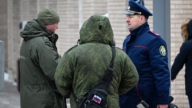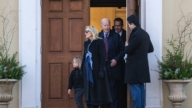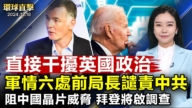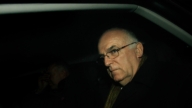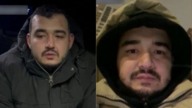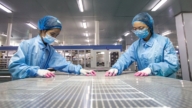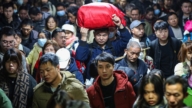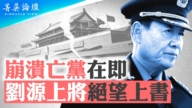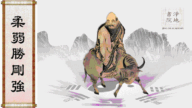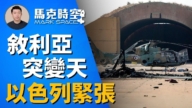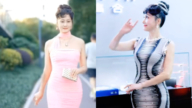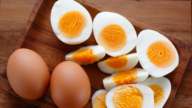【新唐人2012年9月10日讯】8月份,美国一份关于医学杂志论文显示,美国“塔夫茨大学”一科研机构2008年在湖南省一所小学进行转基因大米,也称“黄金大米人体试验 ”,引发轩然大波。论文作者包括一名美国大学华裔学者和三名中国学者,但是中方学者否认做过“黄金大米实验”。而卷入的小学也否认学生食用过黄金大米。究竟谁在说谎? 请看一下报导。
8月1号,《美国临床营养学杂志》网站发表了一篇名为《黄金大米中的β-胡萝卜素与油胶囊中的β-胡萝卜素对儿童补充维生素A同样有效》论文。研究人员2008年在湖南省的一所小学进行试验,针对的是6到8岁的健康在校小学生。
论文第一作者汤广文为美国“塔夫茨大学”研究员,论文第二作者胡余明为中国“湖南省疾控中心”工作人员,第三作者荫士安为“中国疾控中心”研究员,第四作者王茵为“浙江医学科学院”研究人员。论文声称,所有的作者都审查了原稿。
这个消息因为“美国用中国儿童进行人体实验”这样一个噱头,引发中国人的愤怒情绪,促使中国有关机构和个人纷纷站出来辟谣。却引爆意外的黑幕和谜团。
“中国农业大学食品科学与营养工程学院”教授陈尚武教授说,进行人体实验应该极其谨慎。
陈尚武:“这个涉及人体实验,我们从历史上来说,我们是有过经验教训的。我们是吃过亏的。不是你想做就随便做的。这个东西要严格。你得严格备案。 ”
论文的第二作者胡余明对记者表示,对于这篇论文,他不知情,论文内容和他曾经做的实验是两码事。第三作者荫士安9月4号给记者的声明说,“对黄金大米数据不知情。”
9月1号,湖南省衡阳市政府发表一份声明表示,在衡南县“江口中心小学”进行的实验不是转基因试验,而是“植物中类胡萝卜素在儿童体内转化成为维生素A的效率研究”,并且,所有食品都在当地采购。
荫士安在接受《央视》采访时含糊其辞说,除了胡萝卜和菠菜两个组外,另外一个是空白的对照组。面对记者追问汤文广有没有带黄金大米到中国,他说“不记得”。被问及为何签字同意发表论文,他说“疏忽了”。
陈尚武表示,这个事件有多处疑点需要澄清。
“中国农业大学食品科学与营养工程学院”教授 陈尚武:“第一,这个东西是不是发生了?这个很重要。因为这个事情本来是个比较敏感的事情。因为我看有报导说,院士出来说,这个就是合理的,就是应该的,我觉得这话说的不太合适。第二,这事如果没有发生,如果纯粹是为了多发文章,这个不可取的。你没有做。这样不行的。如果做了,但是摄于社会影响,不敢承认了,当时是积极的搞了,事后不敢承认了,国家应该有适当的干预。”
7号中午,浙江省“医学科学院”在官网上,向外界公布了这家医院关于“黄金大米”的研究论文初步核查情况,其中披露,2002 年荫士安向医院申请跟美方合作进行黄金大米实验。最早的实验现场选择在浙江,随后才转到湖南衡阳继续进行。
如果浙江“医学科学院”所披露的初步调查结果是真实的,那么荫士安就至始至终参与了这项实验。也就是说,他否认知道黄金大米实验是在说谎。
吊诡的是,官方已经否认进行黄金大米实验,9月8号《人民网》的报导中,又有学者出台力撑转基因大米试验,难道黄金大米实验确有其事?重重疑团远远没有消散。
采访编辑/秦雪 后制/肖颜
Who’s Lying about the Golden Rice?
In August, uproar ensued as a medical journal
Published research conducted by Tufts University
in an elementary school in Hunan Province in 2008
with the genetically modified Golden Rice.
This human trial was co-authored by four Chinese researchers,
one from an American University and three from Chinese institutes.
Authors from Chinese institutes denied conducting the test,
and the school also denied the students ingested the rice.
Who is lying?
Chinese authorities claim investigation is underway.
August 1, the American Journal of Clinical Nutrition (AJCN)
published an on-line article entitled,
“β-Carotene in Golden Rice is as good as β-carotene in oil at providing vitamin A to children,"
which was carried out in an elementary school in Hunan
Province in 2008 on school children aged 6-8 years old.
The first author of the paper, Tang Guangwen, is a Tufts
University researcher,
the second author, Hu Yuming, is staff at Hunan Provincial
Center for Disease Control and Prevention,
the third author, Yin Shi-an, is a researcher at the National
Institute for Nutrition and Food Safety,
and the fourth author, Wang Yin, the Zhejiang is a researcher
at the Academy of Medical Sciences.
The paper stated that all authors reviewed the manuscript.
This news, “the Americans conduct human trials on
Chinese children” has triggered anger in the Chinese.
To refute the rumor, many relevant Chinese institutions
and individuals have spoken out, one after another,
which has only lead to more unexpected shadiness
and mystery.
Chen Shangwu, Professor at the College of Food Science
and Nutritional Engineering of China Agricultural University, says that extreme caution should be taken in human trials.
Chen Shangwu: “Historically, we have had lessons
with human trials. It must be done with strict regulation."
Hu Yuming, the second author of the paper, told the reporter
that he knows nothing about this article and the content has nothing to do with any of the experiments he’s conducted.
Yin Shi-an, the third author, in his September 4 statement
to a reporter, said that he “knows nothing about the Golden Rice data.”
September 1, Hunan Hengyang city government issued
a statement claiming that the experiment carried out
in the Jiangkou Central Primary School in Hengnan County, Hengyang was not with a genetically modified organism,
but rather study of the conversion rate of plant carotenoids
into vitamin A in children’s bodies.
All foods were procured locally, the statement wrote.
Yin Shi-an told CCTV in an interview that there were two
groups with -carotene and spinach, respectively, as well as a control group.
When pressured by the reporter whether Tang Guangwen
brought the Golden Rice to China, he claimed he did not remember.
When asked why he signed and consented the paper,
he stated, “Negligence."
Chen Shangwu indicates that there are many issues
yet to be clarified.
Chen Shangwu: “First, did it happen?
This is very important and sensitive.
I have seen some reports claiming that because some National
Academician agreed with the test then this research is reasonable.
I do not think it is appropriate.
Second, if it did not happen and the data were artifacts
for getting publication only, this is not right.
If it was done, and it is being denied due to social pressure,
that is, if the research was carried out,
but the researchers are not admitting it,
the government should intervene with proper measure."
At Noon on the 7th, Zhejiang Academy of Medical Sciences
stated on its official website that
the initial verification of the Golden Rice research
disclosed that ¬¬in 2002, Yin Shi-an applied to the hospital
for permission to carry out the Golden Rice experiments
in collaboration with the Americans.
The experiments were initially conducted in Zhejiang,
and then subsequently continued in Hengyang, Hunan.
If the preliminary findings of Zhejiang Academy of Medical
Sciences are true, then Yin Shi-an has participated in the experiment from the beginning.
In other words, anything he refused to acknowledge
regarding the Golden Rice experiment was a lie.
The paradox is that the officials have denied the existence
of the Golden Rice experiment,
however People’s Daily reported on September 8
that some scholars support the transgenic rice experiment.
Did the golden rice experiment actually happen?
Numerous questions remain unanswered.


